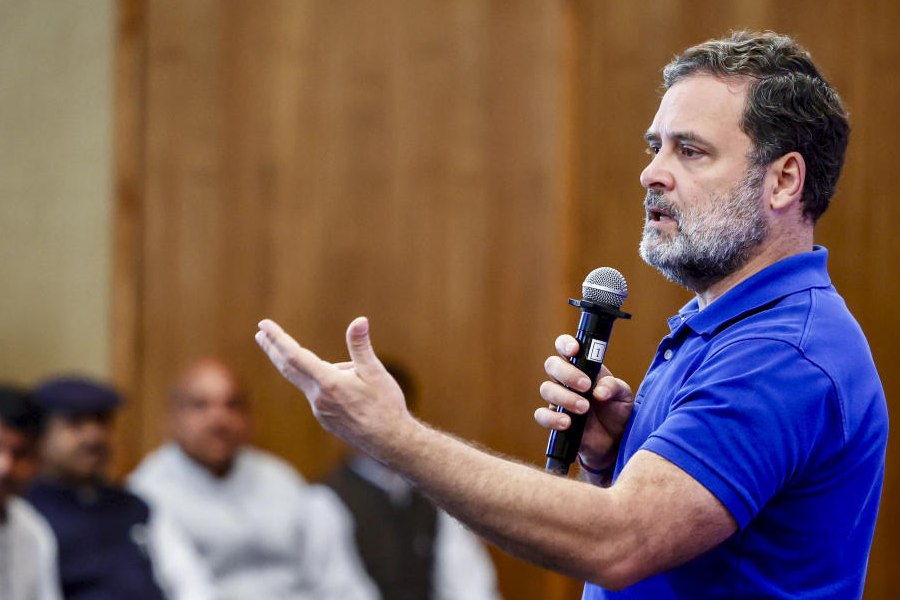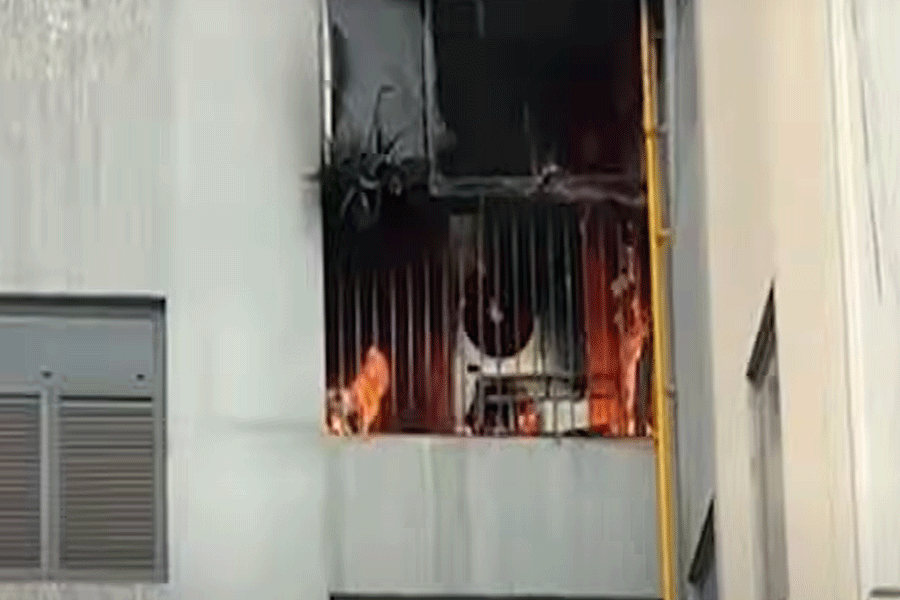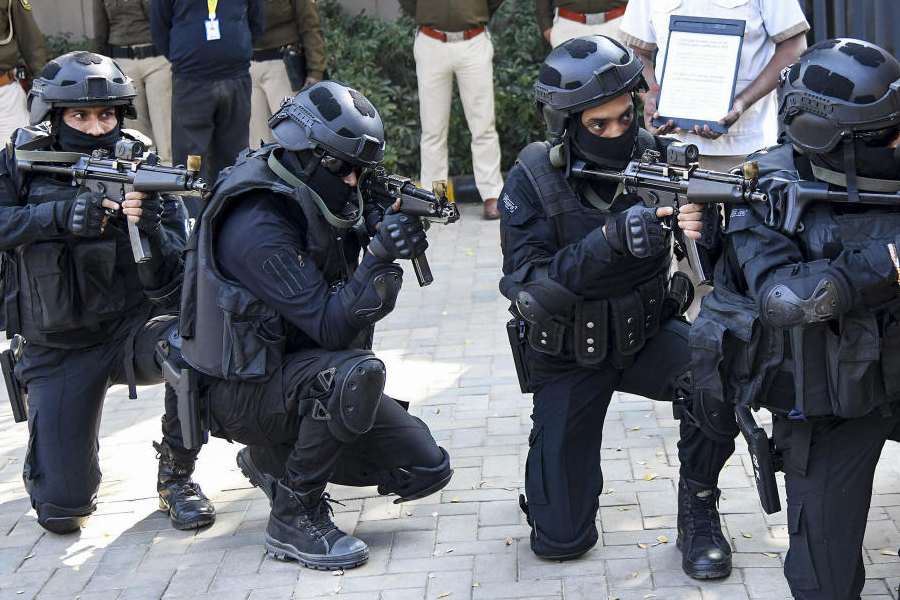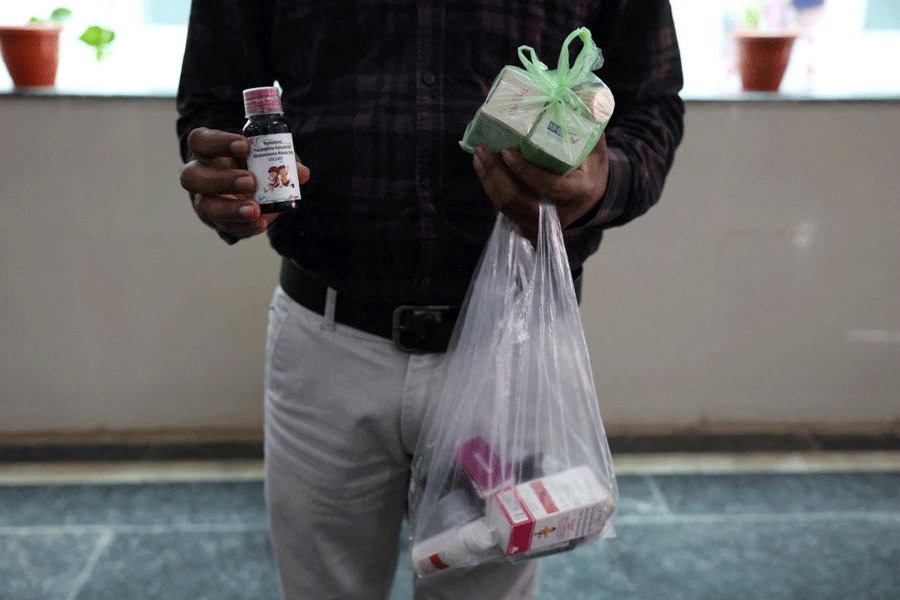Washington, April 15: “Why don’t you give Shah Rukh Khan a diplomatic passport?” an American diplomat who met an Indian official socially during the weekend asked as their conversation inevitably veered towards the actor’s inconvenience at White Plains airport in New York on Thursday. “That will solve the problem for us the next time he travels to the United States.”
The Indian official was a little offended because he thought the American was being his usual smart Alec, but the latter insisted he was serious. “After all, you have given Ratan Tata a diplomatic passport. He always travels with the red passport,” the American continued.
As it happened, the Indian did not know that Tata had been given a diplomatic passport by New Delhi. This official had been away continuously on foreign postings for more than a decade and had not kept close track of such developments back home.
The American told him that he had once travelled first class with the industrialist, he had seen Tata’s diplomatic passport and when they both alighted at New York, Tata went to the special immigration enclosure for diplomatic passport-holders .
When S.M. Krishna became external affairs minister in May 2009, one of his earliest discretionary decisions was to issue a diplomatic passport to Tata, recognising his emergence as a global investor and industrialist who has to travel extensively worldwide, some of those trips on behalf of the government or representing his country.
The external affairs minister’s authority to issue diplomatic passports to non-diplomats and people who are not public servants travelling on official business is one of New Delhi’s best kept secrets, known to few outside the charmed circle of power around the capital’s Raisina Hill.
I.K. Gujral issued privileged diplomatic passports to so many of his friends without rhyme or reason until K.C. Singh, who was then chief passport officer, put his foot firmly down and refused to carry out Gujral’s orders as external affairs minister and later as Prime Minister.
It is another of New Delhi’s best known secrets that although the chief passport officer is usually a mere joint secretary in the ministry of external affairs, he acquires immense powers once he takes office and is almost a semi-constitutional authority as the guardian of the Passports Act of 1967.
However, other than K.C. Singh in the case of Gujral, only one other chief passport officer in recent memory, T.C.A. Rangachari, has exercised the extraordinary powers bestowed on him under an Act of Parliament.
Americans are used to political solutions more than bureaucratic ones: in fact, the entire phalanx of their bureaucracy, made up of political appointees, changes each time a new US President is elected. So it was not surprising that a political solution to the Shah Rukh Khan controversy came to the American diplomat’s mind to avoid dragging down Indo-US relations over this trivial issue.
Meanwhile, SRK continued to shadow Indo-US relations even though the actor had left stateside after completing his schedule at Yale. When Nirupama Rao, India’s ambassador to the US, made a public appearance yesterday at Columbia University’s prestigious annual “India Business Conference,” she was peppered with questions from reporters about Khan instead of the subject of the conference: “India: Maintaining Momentum.”
Once again, Rao was restrained and at her diplomatic best when she said it was an “incident that need not have happened.” She is anxious to put the whole controversy behind as quickly as possible.
When reporters persisted with their questions, Rao referred to yesterday’s press release issued by the Indian mission here and said “We would like to leave it at that.”
South Block’s division dealing with the US is equally disinclined to make a mountain of the Khan molehill, but being too close to the public and political outcry over the actor’s inconvenience, it has less flexibility than Indian officials in far away US.
The Americas division in South Block is headed by Jawed Ashraf, whose reputation as a veteran in dealing with the US is so outstanding that his was the second appointment Rao made when she became foreign secretary in 2009 even though Ashraf had not yet become a joint secretary. She asked him to cut short his stay in Washington to take charge of relations with the US at headquarters.
Apart from the need to elevate Indo-US discourse from the 75-minute airport delay faced by a hero of the silver screen, there is another reason why neither Rao nor Ashraf can press the Americans too hard on Khan’s problems the way New Delhi’s political leadership would like them to act.
India is equally if not more unbending and inflexible on matters of visas for Americans, other immigration issues and security at its airports. If the Indians were to make too much of an issue of Khan’s problems and make other similarly unreasonable demands, the Americans could throw similar incidents in New Delhi on South Block’s face.
A recent incident in which India took a principled, but firm stand, just like the immigration agents who handled Khan’s entry into the US, happened when Janet Napolitano, the US Secretary of Homeland Security, visited New Delhi and Mumbai last May. Incidentally, it was Napolitano’s officials who handled Khan’s arrival for his talk at Yale.
When Napolitano was leaving New Delhi for Mumbai, her entourage insisted that everyone who was part of it should be exempted from security checks at Palam airport. Indian authorities flatly refused, and following rules, they said only Napolitano would be exempt as she is a member of the US cabinet.
The Americans then arrogantly told Indian officials at the airport if everyone in Napolitano’s delegation was not exempt from security, then nobody would go to Mumbai for the second leg of the visit.
Frantic consultations went on between various agencies in New Delhi while Napolitano’s special aircraft remained parked on Palam’s bay, well behind its scheduled departure. But the Indians stood their ground and said everyone on her delegation except Napolitano would be screened or they could chose not to fly at all and stay in New Delhi. The Americans relented.
When this delegation was leaving Mumbai back to Washington, the Americans repeated the same demands. Unfortunately the Maharashtra government’s protocol department lost nerve and allowed the whole entourage to leave without being security-checked.










